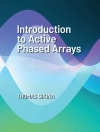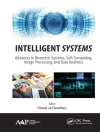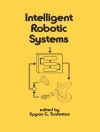There are plenty of challenging and interesting problems open for investigation in the field of switched systems. Stability issues help to generate many complex nonlinear dynamic behaviors within switched systems. The authors present a thorough investigation of stability effects on three broad classes of switching mechanism: arbitrary switching where stability represents robustness to unpredictable and undesirable perturbation, constrained switching, including random (within a known stochastic distribution), dwell-time (with a known minimum duration for each subsystem) and autonomously-generated (with a pre-assigned mechanism) switching; and designed switching in which a measurable and freely-assigned switching mechanism contributes to stability by acting as a control input.
For each of these classes this book propounds: detailed stability analysis and/or design, related robustness and performance issues, connections to other control problems and many motivating and illustrative examples.
Table of Content
Introduction.- Arbitrary Switching.- Constrained Switching.- Designed Switching.- Implications and Applications.- Conclusion.- Appendix.
About the author
Zhendong Sun obtained his Ph.D. degree at the Beijing University of Aeronautics and Astronautics in 1996. He was a Postdoctoral Research Fellow in the Department of Automation, Tsinghua University. From 1998 to 2002, he was with the Faculty of Science, Beijing University of Aeronautics and Astronautics, as an Associate Professor. During this period, he visited the Department of Electrical and Computer Engineering, National University of Singapore, and the School of Electrical Engineering and Telecommunications, University of New South Wales, both as a Research Fellow. From 2002 to 2005, he worked at the Hamilton Institute, National University of Ireland, Maynooth, as a Senior Research Fellow. He joined the Center of Control and Optimization, South China University of Technology in September 2005, and is currently a Full Professor and a Distinguished Young Lecturer.
Dr. Sun’s current research interests are in the fields of nonlinear control systems, switched and hybrid systems, and sampled-data systems. He is author of the book Switched Linear Systems (Springer, 2005). He was the recipient of the Guan Zhao-Zhi Award at the Chinese Control Conference (Hong Kong, China) in 2000. He was nominated as an Outstanding Reviewer for Automatica in 2004. Since 2004, he has been an Associate Editor on the Conference Editorial Board of the IEEE Control Systems Society. He is currently supported by the New Century Talents’ Program of the Ministry of Education of China. He is a senior member of the IEEE.
Shuzhi Sam Ge is the Director of Social Robotics Lab of Interactive Digital Media Institute, and a Professor of the Department of Electrical and Computer Engineering at the National University of Singapore.
Dr Ge was the recipient of the 1999 National Technology Award, 2001 University Young Research Award, 2002 Temasek Young Investigator Award, Singapore, and the 2004 Outstanding Overseas Young Researcher Award from the Chinese National Science Foundation. He was elected to the Fellowship of the IEEE in 2006.
He has (co)-authored three books: Adaptive Neural Network Control of Robotic Manipulators (World Scientific, 1998), Stable Adaptive Neural Network Control (Kluwer, 2001) and Switched Linear Systems (Springer, 2005); and edited one: Autonomous Mobile Robots (Taylor and Francis (CRC Press), 2006), and over 300 international journal and conference papers. He is/has been Associate Editor for a number of flagship journals including IEEE Transactions on Automatic Control, IEEE Transactions on Control Systems Technology, IEEE Transactions on Neural Networks, and Automatica. He is also one of the Series Editors (with Professor Frank Lewis of the University of Texas) of the Taylor & Francis (CRC Press) Automation and Control Engineering Series, and as an elected member of the Board of Governors of the IEEE Control Systems Society. His current research interests include social robotics, multimedia fusion, adaptive control, and intelligent systems.












